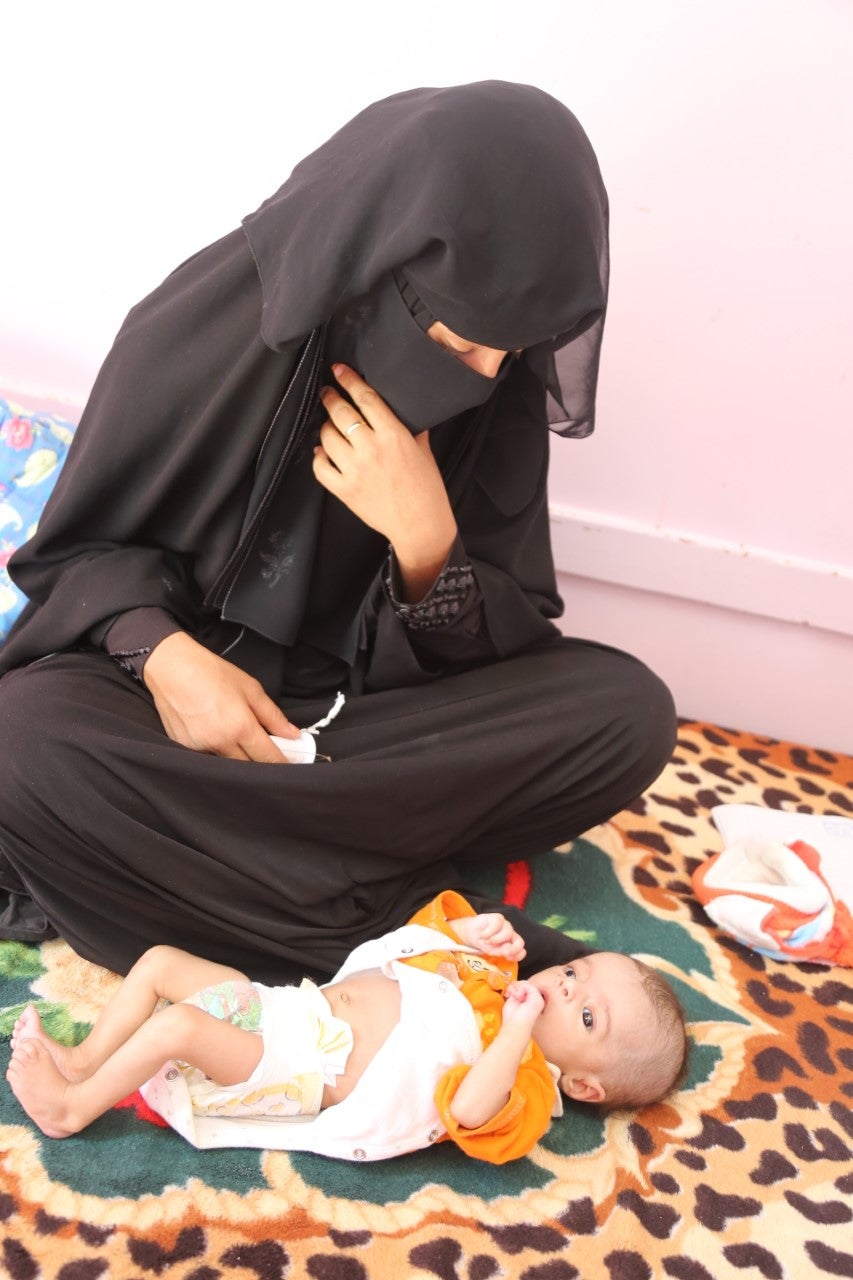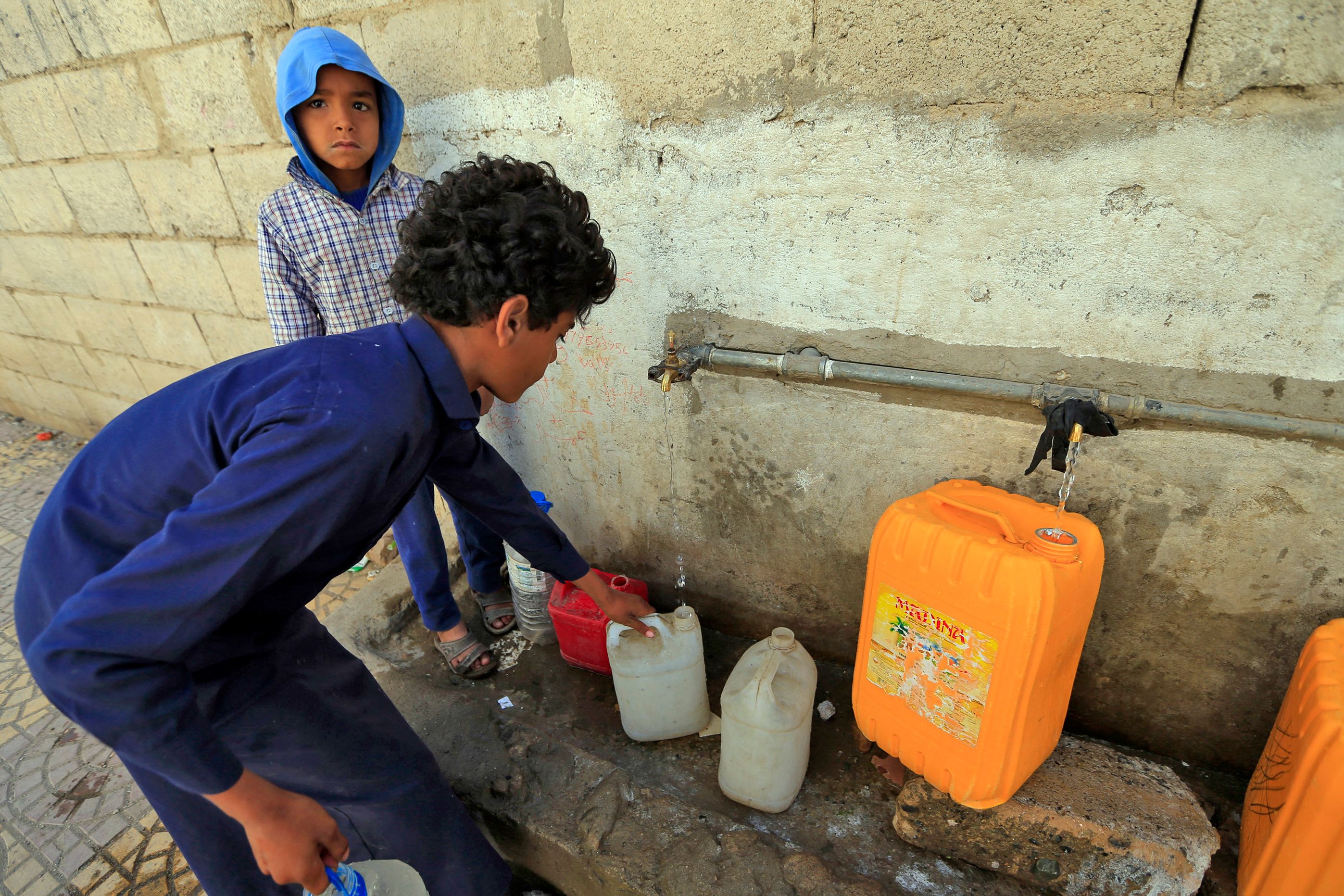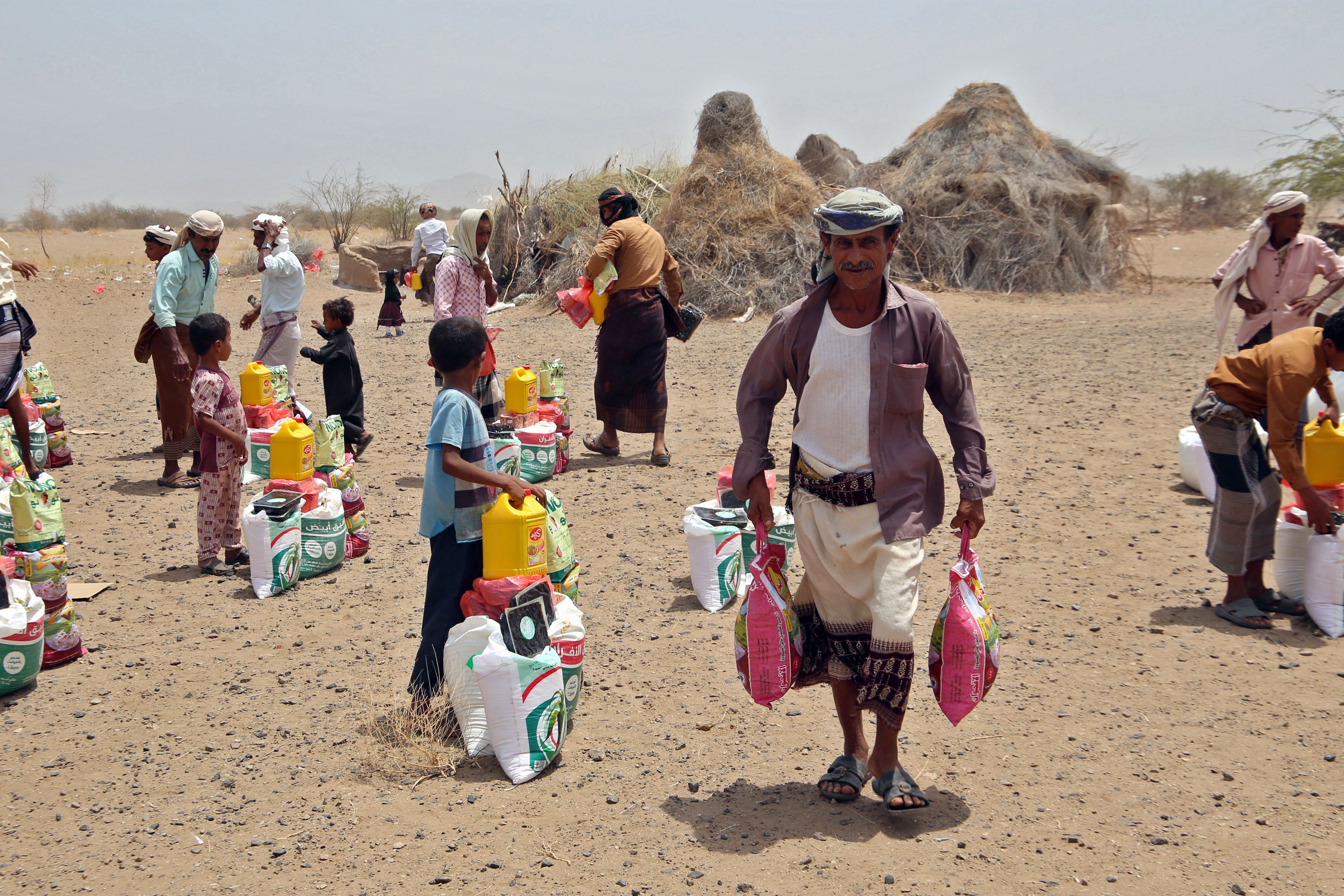Yemen’s hunger crisis deepens as war rages in Ukraine
The spiralling food and fuel costs due to Russia’s invasion of Ukraine are causing economic distress for many desperate Yemenis, reports Charlene Rodrigues


Roughly 2,500 miles away from the Russian bombardment of Ukraine, Yemenis are feeling the cost of the war in Europe.
From a dusty encampment in Lahj in southwestern Yemen, farmer Ahmed Hadash, twice displaced, told The Independent his five children, aged between three and 14, live on a meal a day.
“I just cannot afford to feed my children”, an exasperated Mr Hadash says, living on aid.
Wheat prices have shot up by 30 per cent just over a month into Russia’s invasion of Ukraine. A 50 kg bag of flour that cost 28,000 Yemeni rials (£85) has increased to 40,000 (£120). Cooking oil is up 36 per cent.
Sana al-Hamidi, 33, gave birth to her newborn in March. She says: “He looked like a ghost, a scary skeleton with very small bones and worn skin. I cried a lot when I saw him.” A month before her son arrived, her husband was killed while travelling in search of work, leaving her to fend for herself and her older children. Her newborn is being treated for acute malnutrition at al-Sabaeen’s specialist maternity and children wing. But she fears leaving the hospital.
“There is more suffering for me outside – there is hunger, the war, the fear of feeding my newborn child and diseases”, she says.
Stories of such desperation are not uncommon across Yemen. A fifth of Yemen’s wheat supplies come from Ukraine and Russia. But Yemenis say rising fuel prices, lack of work and unpaid salaries, coupled with a surge in demand and a shortage of supply, have all contributed to the starvation crisis.

“People’s resilience is at a breaking point”, World Food Programme’s Corinne Fleischer says. “This crisis is creating shock waves in the food markets that touch every home in this region. No one is spared.”
Some families, like Ms al-Hamidi’s, are forced to send their children to work. They wake up at dawn every day to collect used empty water bottles and sell them to buy some food. Others are left with no option but to marry off their girls, some as young as ten, to pay family debts. Families have been forced to eat leaves, locusts or nothing.
The Yemeni conflict, now in its eighth year, is showing no signs of a let-up. The Iran-backed militia boycotted peace talks in Saudi Arabia. Last week, they attacked an oil depot in the Saudi city of Jeddah, ahead of a Formula One race in the kingdom.
International aid groups have routinely described Yemen’s hunger crisis as ‘man-made’. Food insecurity is up to 19 million from 11 million since the Saudi bombing campaign started in 2015.
The war has already raised food prices in Yemen, says Abdulghani al-Eryani, a Yemeni consultant who formerly worked with the United Nations. Yemen also imports from Canada, US, and Australia. It is not clear yet whether Yemen can compete for supply with larger nations, Al-Eryani adds.
Grain analysts in Russia and Ukraine say for now supply will not be interrupted but consumers will feel the knock-on effects of the transportation price.
A Russian grain analyst in Moscow, asking not to be named, said prices for wheat soared by $100-150 per tonne in a month as a result of the military conflict.
In order to prevent a catastrophic hunger crisis, he added that countries like Iraq, Iran, Egypt, Algeria, Morocco, Tunisia, Yemen and other African countries, will need humanitarian aid or credits to buy wheat or flour with increased prices.
Yemen was not always food insecure. Ancient geographer Ptolemy described it as ‘Arabia Felix’, or ‘Happy Arabia’, for its rich fertile soil, dams and sophisticated irrigation networks, which in antiquity made growing frankincense and myrrh possible in the desert.
Prior to 1970, Yemen was close to self-sufficiency in basic grains, a key component of its citizens’ diet. Grain production fell after the 1970s, and was chronically underfunded under the leadership of President Ali Abdullah Saleh, who ruled Yemen for 33 years.
Since 2015, all parties to the conflict have used starvation as a war weapon. Houthis have stolen aid, blocked deliveries to intended recipients and planted landmines that have destroyed water pipelines and killed Yemeni farmers.
Saudi and UAE’s military campaign, aided by the UK, has targeted Yemeni farmlands, farming machinery, fisheries, markets, sanitation and freshwater infrastructure, including bridges and dams.
If Russia’s bombing campaign prolongs, Nikolay Yurchak, a senior trader in Ukrainian agricultural commodities, said that overall wheat production would fall in 2022/2023.
In the short term, Mr Yurchak explained that the grain will be trapped inside Ukraine and can’t leave until the marine blockade is lifted or the landmines are cleared. In the mid-term, farmers might delay planting new crops until the political and military situation becomes clear.
“Russian exports could slow down, but will not stop. Also, there is a drought in the USA and bad winter wheat conditions in China”, said a Russian grain analyst, adding: “Turkey, Egypt and other Middle East and African countries rely on our grain.”
Sanctions at this stage have no direct impact on exports.
“The Russian government started to regulate exports a lot in recent years, and for Russian farmers there are no additional serious restrictions – at least for now”, says Andrei Sizov, managing editor of The Sizov Report.
Mr Yurchak said if Mr Putin succeeds in occupying key southern ports, Ukrainian farmers will boycott them and route grains via Romania or Poland. This again will increase transportation costs and make it less affordable for consumers, he added.
Yemen’s agricultural sector provides roughly 58 per cent of the country’s employment. In Lahj, farming communities like Mr Hadash’s are desperate to reduce their reliance on foreign grain. But years of war and destruction to their farming land coupled with a price increase in fertiliser and pesticides hinders their ambitions.
Grassroots organisations led by Yemeni women, like Food4Humanity and Yemen Aid, have been providing practical solutions, including supporting farmers with training, seedlings, equipment, solar power and waterworks.
They have the backing of private organisations, but face obstacles. The UN funding system restricts partnerships with women-led organisations in general, says Muna Luqman, founder of Taiz-based Food4Humanity, adding: “The majority of funding goes to UN agencies or international organisations.”

Environmental engineers have also warned that toxic chemical gases have made swathes of land unusable, contributing to the growing food security crisis.
Mr Al-Eryani said that Yemeni agriculture suffers from soil quality and groundwater degradation due to overuse of fertilisers and pesticides, as well as limited arable land (2.8 per cent).
The development of agriculture requires good planning, good management and well-trained farmers. It will take years of stability to achieve that, he added.
Ms Luqman is keen to focus on long-term sustainability and livelihood programmes. She is urging the UN and other international aid groups to partner with grassroots initiatives. “We have access to remote areas and knowledge of areas difficult to access for international organisations”, she says.






Join our commenting forum
Join thought-provoking conversations, follow other Independent readers and see their replies
Comments